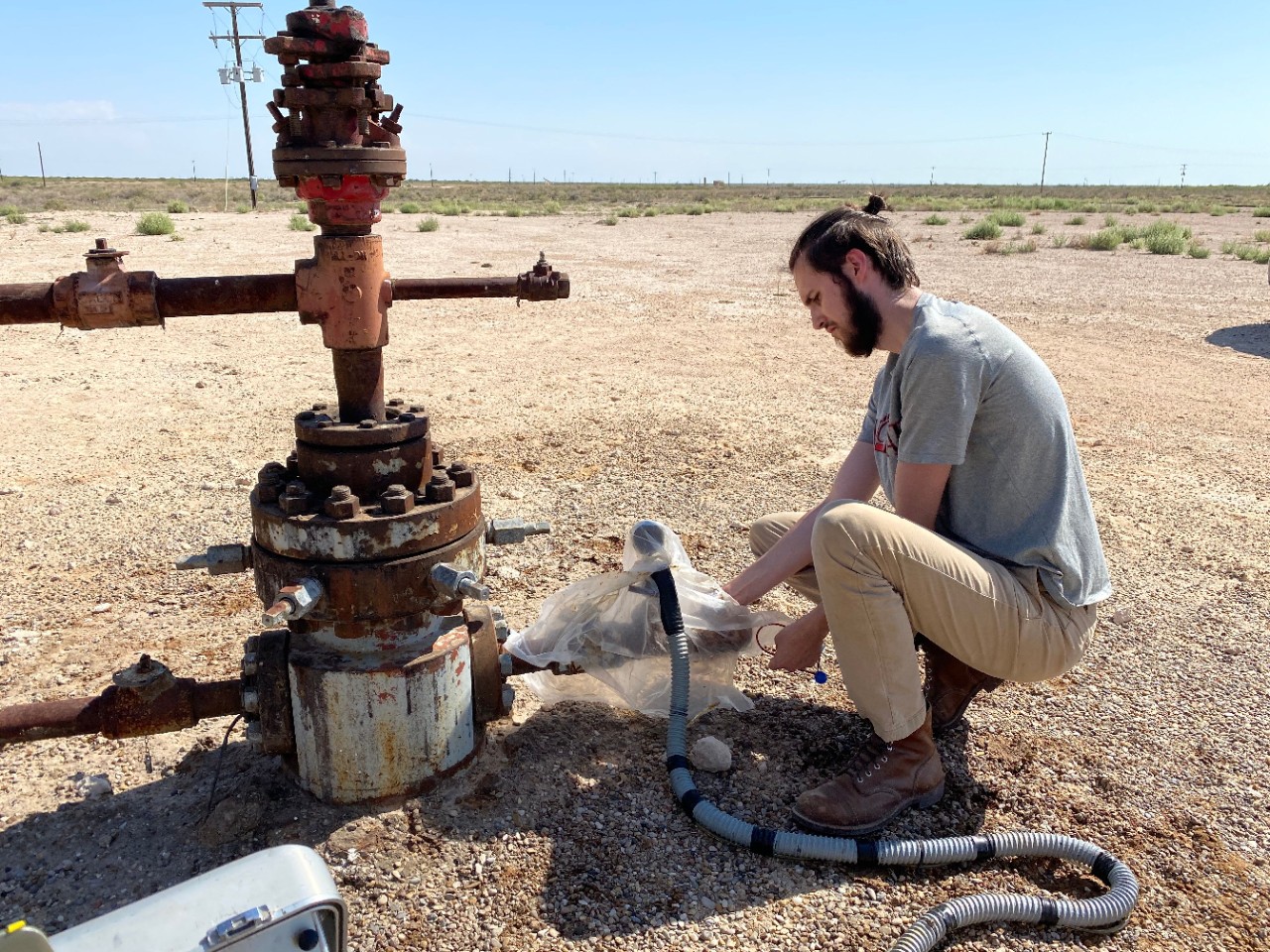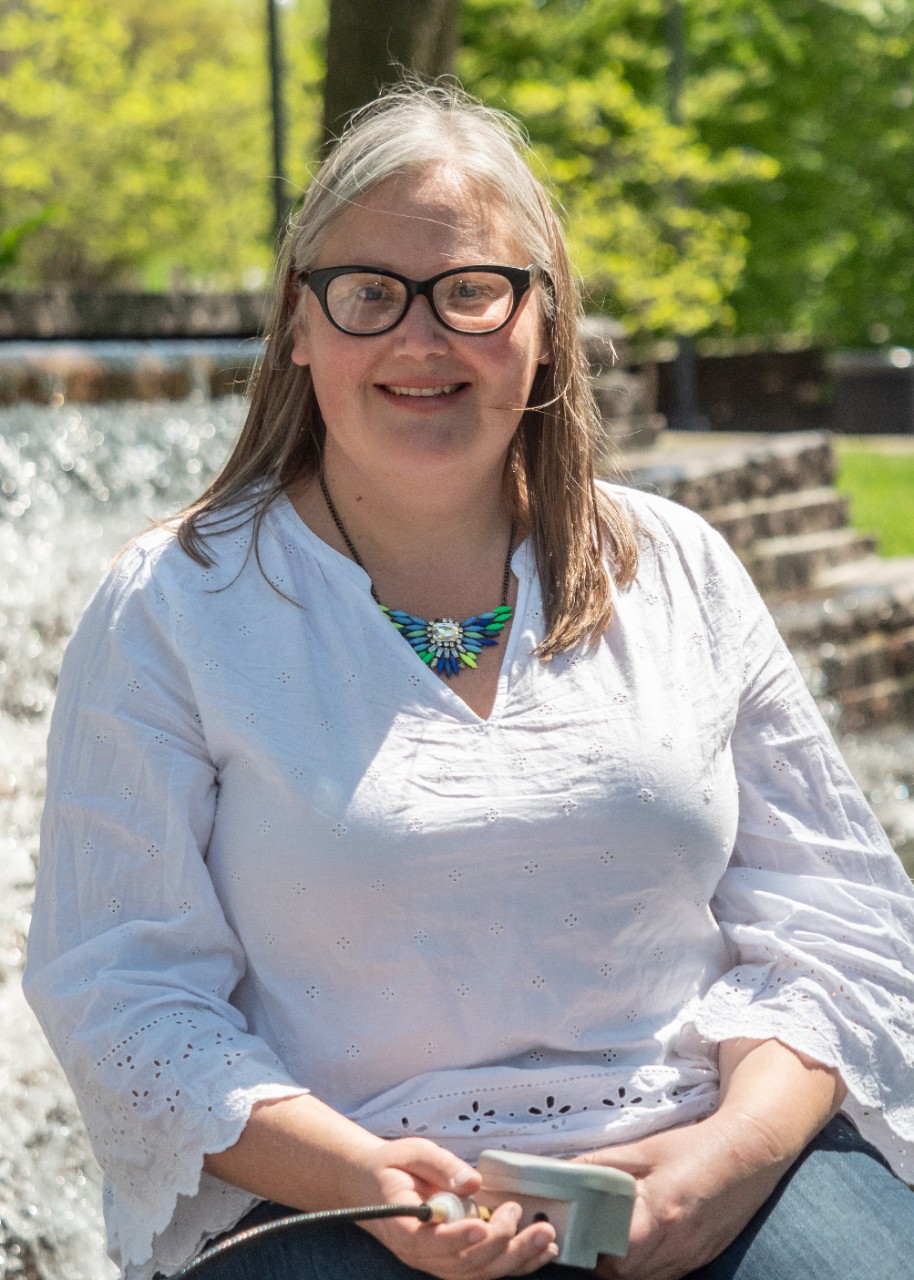
NPR: Abandoned wells are leaking planet-warming methane
UC expert says only some of 4 million wells are leaking, but knowing which ones takes effort
NPR's program Here & Now turned to University of Cincinnati Professor Amy Townsend-Small to explain the extent of leaking oil and gas wells across the United States.
Townsend-Small has been studying the issue at wells across the country. In studies such as her 2021 investigation of the Permian Basin of Texas published in the journal Environmental Research Letters, Townsend-Small found that uncapped, idle oil wells could be leaking millions of kilograms of methane into the atmosphere and surface water each year. It was the first examination of its kind of methane emissions from inactive oil wells in Texas.

Amy Townsend-Small. Photo/Jay Yocic/UC
More recently, Townsend-Small examined the potential benefits of turning off marginal, low-producing wells, which would significantly reduce the amount of methane released into the atmosphere without impeding production. Turning off wells is a simple and inexpensive process compared to permanently plugging them, leading to a large reduction in methane emissions at relatively low cost. The study was published in the journal PLOS One.
"We have about 1 million active wells in the United States and about 3 million inactive ones. So we need to clean those up," she told NPR.
Townsend-Small said active wells leak more than abandoned ones. But the total scope of the problem has not been determined.
"Because there are so many abandoned wells, we don't know if we've accurately measured or captured how many of these very high-emitting abandoned wells there are," she told NPR.
Featured image at top: UC graduate Jacob Hoschouer takes samples at the site of an oil well in Texas. Photo/Provided
Related Stories
Regional media: UC expert talks about abandoned wells
September 15, 2022
UC College of Arts and Sciences associate professor Amy Townsend-Small talks to the WFMP program Sustainability Now! and WOSU's the Ohio Statehouse about Kentucky's leaking oil and gas wells and a new federal initiative to cap them.
NPR: Abandoned wells are leaking planet-warming methane
June 28, 2023
UC College of Arts and Sciences Professor Amy Townsend-Small tells NPR's Here & Now program that a relatively small percentage of wells are responsible for most of the methane spilling into the atmosphere from leaks.
BBC: 'Snowball Earth' could have been a slushball
April 10, 2023
The BBC highlights a study by University of Cincinnati geologist Thomas Algeo that examined an ice age 635 million years ago.
